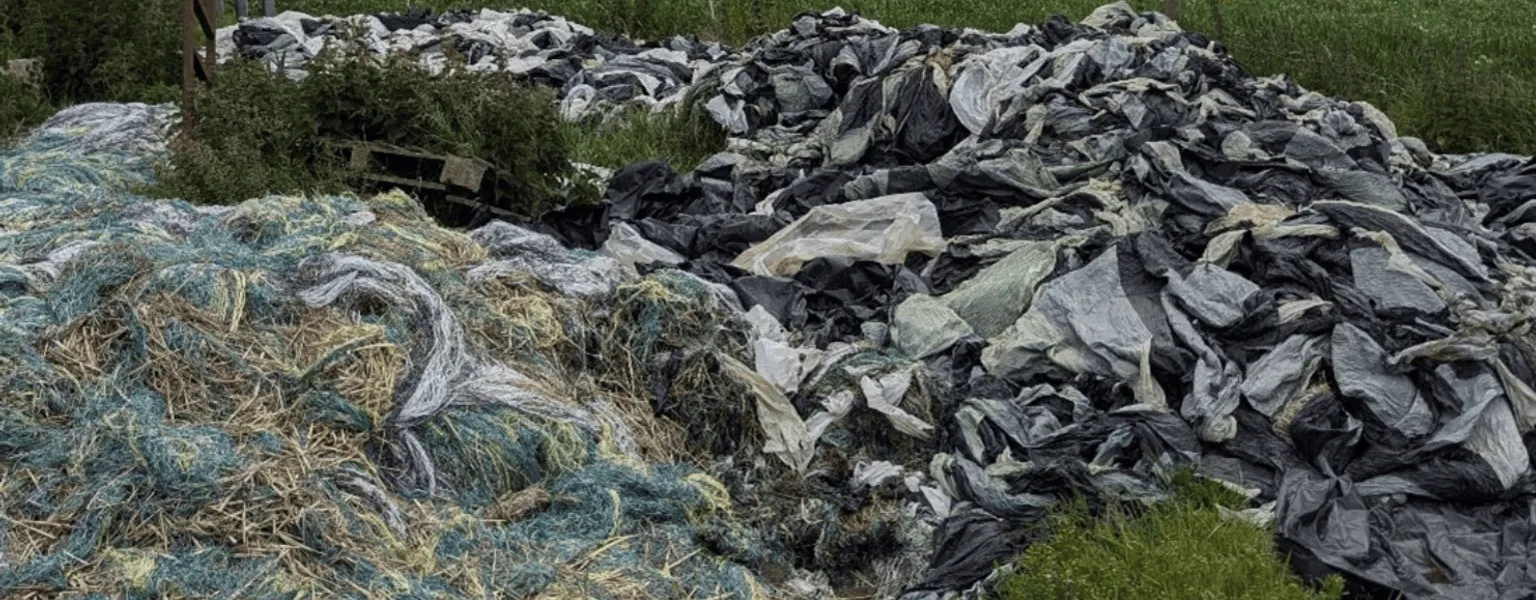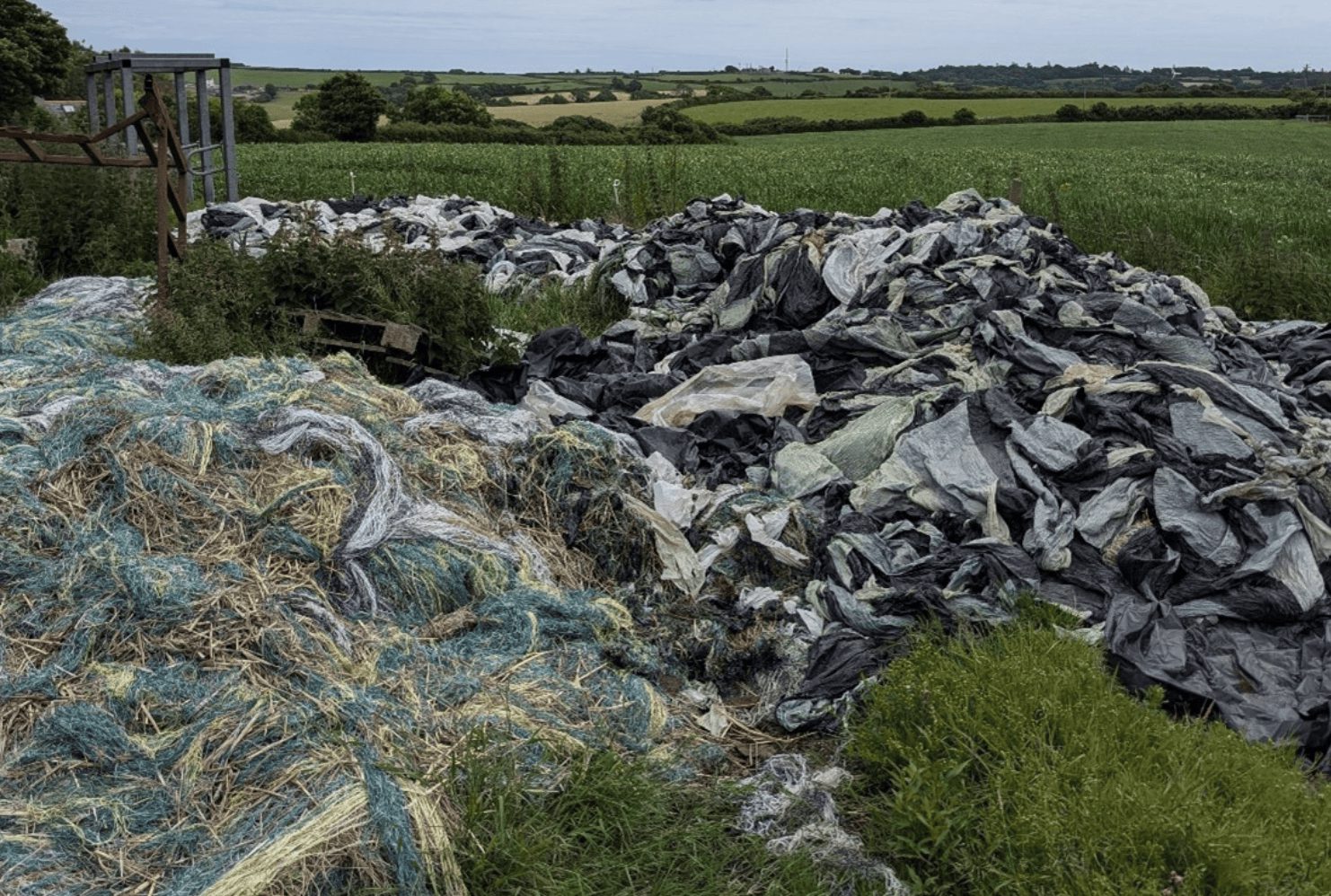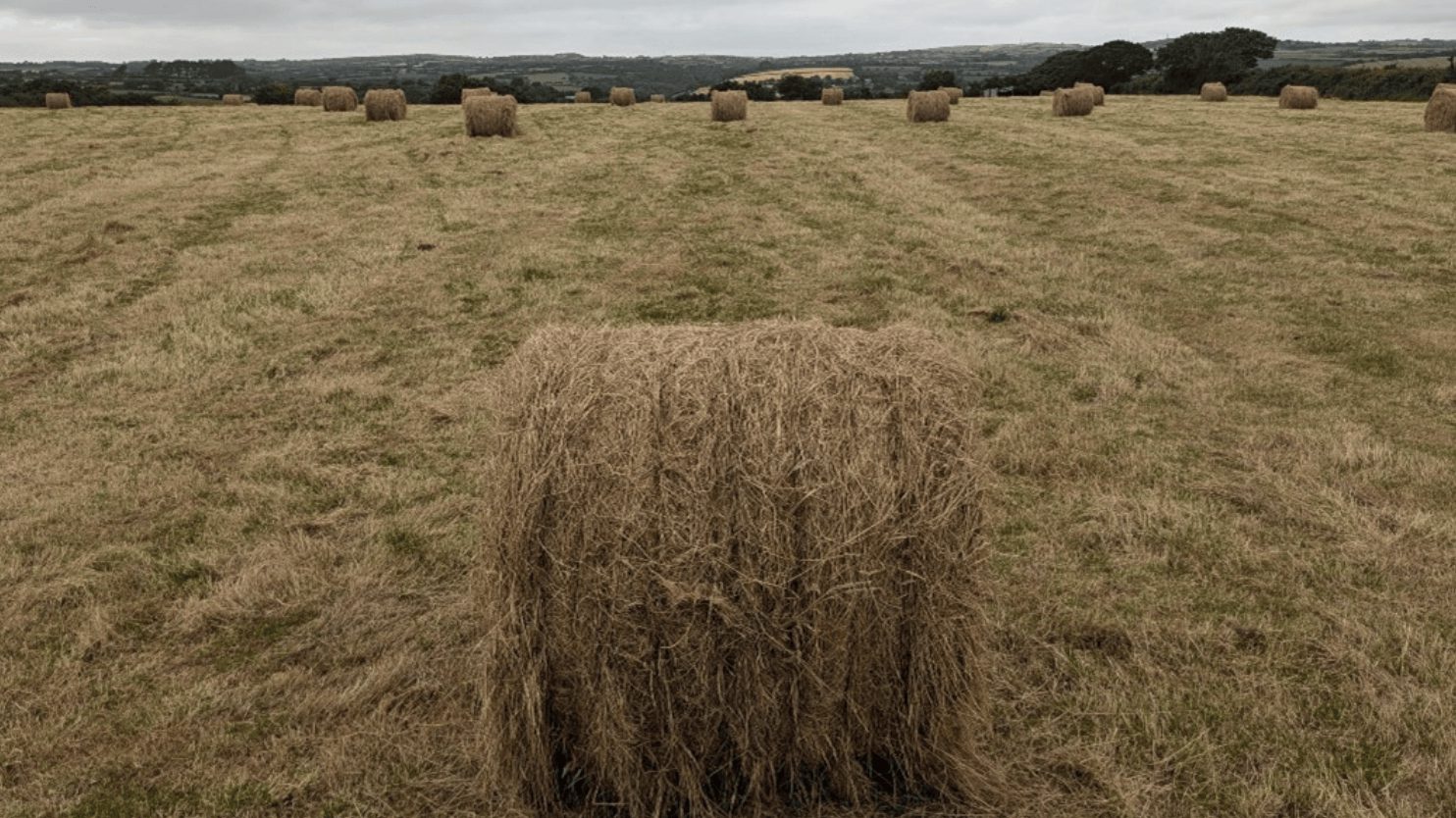Farmers replace plastics with biodegradable twine in new farm trial

Sustainability
UK Farmers are looking to turn back the clock on microplastic pollution by wrapping hay bales in biodegradable twine instead of “nightmare” single-use plastics, in a new field lab with Innovative Farmers.
Plastic net wrap is used on farms across the UK but it sheds microplastics that pollute water and soil and end up getting eaten by farm animals.
This is a major environmental issue, with the UK producing an estimated 135,000 tonnes of agricultural plastic waste annually. It is also a major health issue with researchers increasingly finding microplastics in our food and bodies.
To help tackle this, farmers from 12 sites across Scotland, Wales and England are wrapping bales using twine from sisal, a cactus-like plant that was widely used before plastic became popular.
Field lab coordinator Stuart Oates farms cattle on Rosuick Organic Farm on Cornwall’s Lizard peninsula. Experimenting with sisal, he aims to remove all plastics from his farm, and eventually replace fossil fuels entirely.
He said: “Plastic net wrap is a nightmare material. It’s almost impossible to cut off without small pieces falling into the hay, which then spread into the environment and get eaten by our animals.
“This can build up quickly as we process thousands of bales a year.
“The effects of ingesting microplastics on animal and human health is only now starting to be understood, and none of it is good.”

Biodegradable alternative for hay bales
Sisal requires few chemical inputs to grow, is easy to use in existing farm equipment and contains no toxic microplastics so can be safely composted.
The one-year trial will compare 5,000 bales, half using sisal twine and half in plastic net wrap, stored in barn conditions ranging from dry to exposed.
The bales will be lab-assessed next year in March and November for protein and sugar content, and to compare the dryness of the material under different conditions.
It is hoped sisal will keep the bales secure and dry, giving farmers a nature-friendly alternative that saves on vet bills and plastic tax.
Oates added: “Our early experiments have shown that sisal is incredibly strong and quick to process, so it’s a win for us and the environment.
“Small steps can lead to huge change – we want to see if this can be applied on a larger scale, so we’re encouraging farmers to join the trial and see how sisal can work for them.”
Reviving nature-friendly traditions
Farm plastic is often burned, buried or sent to landfill once used – causing further harm to the environment.
The farmers are now planning how to scale up production, working with contractors to discuss costs.

If the advantages turn out to be significant, it could benefit all UK livestock farmers.
Field lab researcher Conor Kendrew of the Cornwall Wildlife Trust said: “A successful trial means a strong business case for sisal.
“From there we can look at establishing economies of scale, cutting farm costs.
“If you’re a farmer using sisal, your research will support other farmers, helping re-build an industry around environmentally sound practices.”
Innovative Farmers Coordinator Laura Gude said: “We’re excited to see farmers take the lead on this research.
“Plastic alternatives like sisal are not widely known – this could be a huge opportunity for livestock farmers.
“We hope this inspires others to try these nature-friendly methods, and would encourage any interested parties to follow the trial.”
All results from the field lab will be made available open source. To join the trial and for updates, visit the Innovative Farmers website.
This article was originally published by Innovative Farmers.
Related News
-
Supplier News
Berry Global's agricultural films reduce silage losses and improves efficiencies
-
Sustainability
Innovative depackaging technology turns HelloFresh food waste into compost and animal feed
-
Business
UK launches consultation for fairer and clearer food labelling
-
Supplier News
Improving the efficiency of farming operations with silage film Silotite1800
-
Supplier News
Tentoma 100% sealed waste bale packaging




